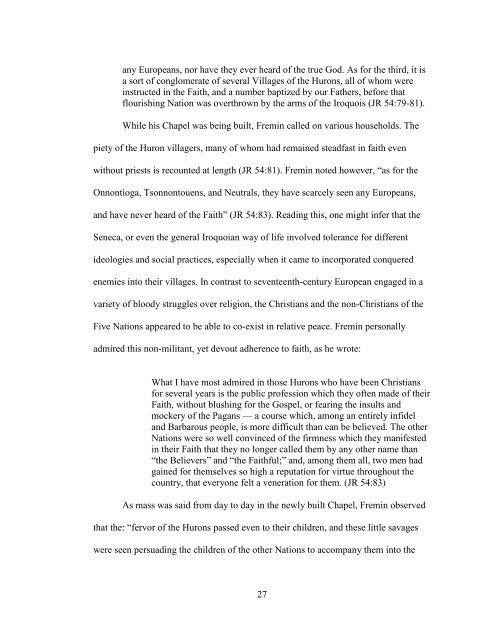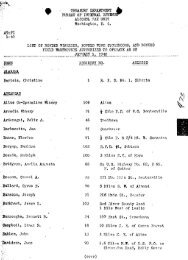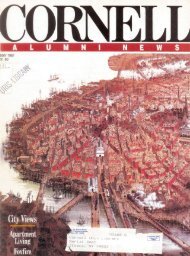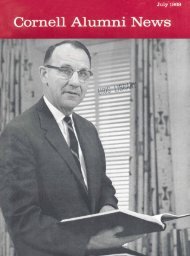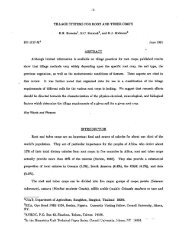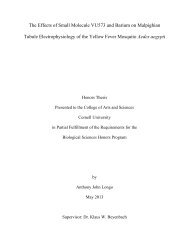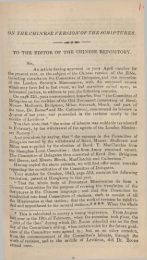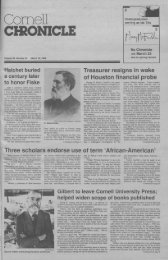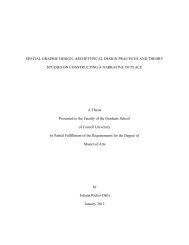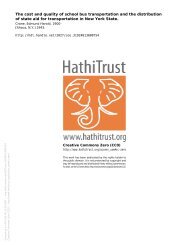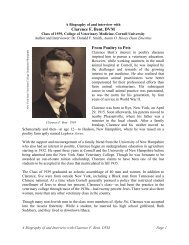archaeological and textual records - eCommons@Cornell - Cornell ...
archaeological and textual records - eCommons@Cornell - Cornell ...
archaeological and textual records - eCommons@Cornell - Cornell ...
You also want an ePaper? Increase the reach of your titles
YUMPU automatically turns print PDFs into web optimized ePapers that Google loves.
any Europeans, nor have they ever heard of the true God. As for the third, it is<br />
a sort of conglomerate of several Villages of the Hurons, all of whom were<br />
instructed in the Faith, <strong>and</strong> a number baptized by our Fathers, before that<br />
flourishing Nation was overthrown by the arms of the Iroquois (JR 54:79-81).<br />
While his Chapel was being built, Fremin called on various households. The<br />
piety of the Huron villagers, many of whom had remained steadfast in faith even<br />
without priests is recounted at length (JR 54:81). Fremin noted however, “as for the<br />
Onnontioga, Tsonnontouens, <strong>and</strong> Neutrals, they have scarcely seen any Europeans,<br />
<strong>and</strong> have never heard of the Faith” (JR 54:83). Reading this, one might infer that the<br />
Seneca, or even the general Iroquoian way of life involved tolerance for different<br />
ideologies <strong>and</strong> social practices, especially when it came to incorporated conquered<br />
enemies into their villages. In contrast to seventeenth-century European engaged in a<br />
variety of bloody struggles over religion, the Christians <strong>and</strong> the non-Christians of the<br />
Five Nations appeared to be able to co-exist in relative peace. Fremin personally<br />
admired this non-militant, yet devout adherence to faith, as he wrote:<br />
What I have most admired in those Hurons who have been Christians<br />
for several years is the public profession which they often made of their<br />
Faith, without blushing for the Gospel, or fearing the insults <strong>and</strong><br />
mockery of the Pagans — a course which, among an entirely infidel<br />
<strong>and</strong> Barbarous people, is more difficult than can be believed. The other<br />
Nations were so well convinced of the firmness which they manifested<br />
in their Faith that they no longer called them by any other name than<br />
“the Believers” <strong>and</strong> “the Faithful;” <strong>and</strong>, among them all, two men had<br />
gained for themselves so high a reputation for virtue throughout the<br />
country, that everyone felt a veneration for them. (JR 54:83)<br />
As mass was said from day to day in the newly built Chapel, Fremin observed<br />
that the: “fervor of the Hurons passed even to their children, <strong>and</strong> these little savages<br />
were seen persuading the children of the other Nations to accompany them into the<br />
27


